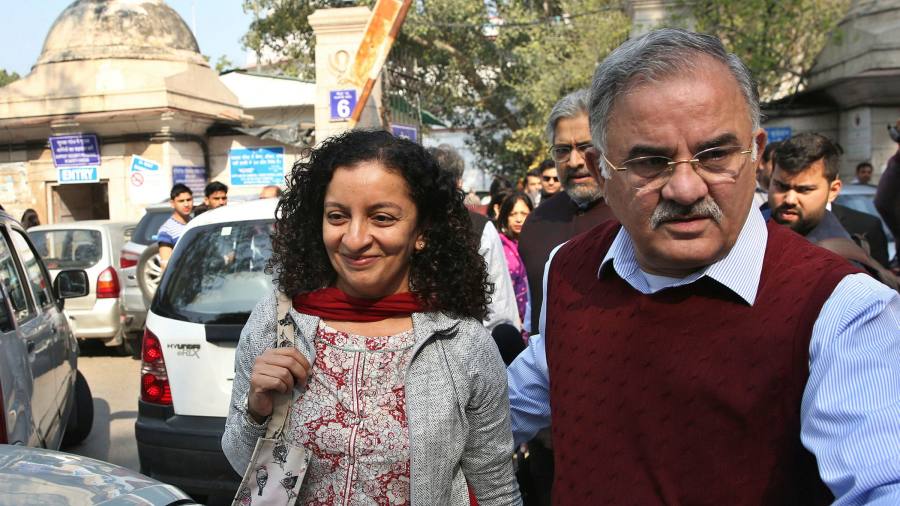[ad_1]
India’s #MeToo movement received a boost on Wednesday when a prominent female journalist was cleared of criminal defamation after publicly accusing an erstwhile government minister of impropriety.
Priya Ramani, who faced two years in prison if convicted, said she hoped her acquittal would “make more women speak up and discourage powerful men from filing false cases against women who share their truthsâ€.
MJ Akbar, a former minister of state for external affairs in the Bharatiya Janata party government, resigned from his post in October 2018 after 16 female journalists publicly accused him of predatory workplace behaviour during his years as a powerful newspaper editor.
Akbar denied any wrongdoing and filed a criminal defamation case against Ramani, who was the first to publicly accuse him and urge other women to come forward with accounts of his behaviour.
Akbar said the accusations against him — which included claims that he forcibly kissed employees and interviewed young job candidates in hotel rooms at night — were part of a political conspiracy linked to the then upcoming election.
In a 2018 tweet, Ramani had named Akbar as the former boss whose unsavoury conduct she had described, without identifying him, in a 2017 Vogue India article called “To the Harvey Weinsteins of the worldâ€.
Her accusations came as India was having its own #MeToo moment, with women taking to social media to share accounts of workplace sexual harassment.
In acquitting Ramani of criminal charges on Wednesday, Judge Ravindra Kumar Pandey said a person’s right of reputation could not be protected at the cost of the right to dignity of sexual abuse survivors, who had “the right to raise their grievances even after decadesâ€.
Female journalists and women’s rights activists, who have closely tracked the case, were jubilant at Ramani’s acquittal but expressed dismay that she had been prosecuted at all.
“A very important battle won in India,†said Suhasini Haidar, diplomatic editor of The Hindu newspaper, in a tweet. “All of us should be proud of Priya, and the way she has stood up, despite attempts to prosecute her for speaking up on sexual harassment in order to silence the voices of so many others.â€
As the #MeToo movement rocked the globe in 2018, India was confronted by an outpouring of anger from women complaining about sleazy and sometimes violent harassment in their own workplaces, where they said their grievances had been ignored, belittled or brushed aside.
The furore has included complaints against men in advertising, journalism, the entertainment industry and law, highlighting the hostile work environment many women still face in a patriarchal society where sexual assault victims are routinely blamed for crimes committed against them.
Less than 20 per cent of India’s working-age women — typically the poorest or wealthiest sections of society — hold paid jobs, and young women are often pressured to quit after marriage or childbirth, amid concerns about workplace safety and propriety.
Madhu Mehra, executive director for Partners for Law in Development, a women’s rights organisation, said she hoped Wednesday’s verdict would encourage employers to take sexual harassment more seriously.
Surveys show most Indian women keep silent about sexual harassment at work, fearing it will hit their careers or damage their own reputations.
“It’s a sorry state that women are forced to take to social media [with sexual harassment complaints],†Mehra said. “Hopefully this judgment will encourage organisations to create not just the mechanisms, but the enabling environment, for women to be able to speak without fear of backlash.â€
[ad_2]
Source link





